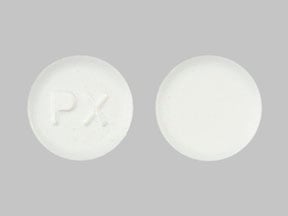
Mirapex Coupons & Savings Card – Discount Prices from $10.20
Brand for: Pramipexole
My prescription
Edit
0.125MG, Pramipexole (30 Tablets)
Select pharmacy

CVS
$18.63
COUPON PRICE
Walgreens
$10.20
COUPON PRICE
Albertsons
$11.12
COUPON PRICE
Walmart
$16.31
COUPON PRICEMirapex savings card
Show this card to your pharmacist
Walgreens
$10.20
BIN
ID
PCN
GRP
019876
LHCFF67992
CHIPPO
LHX
Powered by
Related dopamine agonists prescriptions
More prescriptions for restless leg syndrome
Related dopamine agonists prescriptions
More prescriptions for restless leg syndrome
Price history for Mirapex (brand) & Pramipexole (generic)
30 Tablets, 0.125MG
Average retail price for Mirapex
Average retail price for Pramipexole
Average SaveHealth price for Pramipexole
Our price history data is based on aggregated prescription data collected from participating pharmacies in America. Our prescription data updates daily to reflect the latest price changes. If you notice a missing data point, it means there wasn't sufficient data available to generate a monetary value for that date.
Over the last 12 months, the average discount price of Mirapex is $11.35 using the SaveHealth savings card. That's an average savings of 95.64% on Mirapex with our discount card.
*Retail prices are based on pharmacy claims data, and may not be accurate when we don't have enough claims.
Mirapex (Pramipexole) dosage forms
Dosage Quantity Price from Per unit 0.125MG 30 Tablets $10.20 $0.34 0.125MG 60 Tablets $11.41 $0.19 0.125MG 90 Tablets $19.89 $0.22 0.5MG 30 Tablets $10.48 $0.35 0.5MG 60 Tablets $11.95 $0.20 0.5MG 90 Tablets $20.61 $0.23 0.75MG 30 Tablets $5.14 $0.17 0.75MG 60 Tablets $7.78 $0.13 0.75MG 90 Tablets $16.92 $0.19 1MG 30 Tablets $10.73 $0.36
| Dosage | Quantity | Price from | Per unit |
|---|---|---|---|
| 0.125MG | 30 Tablets | $10.20 | $0.34 |
| 0.125MG | 60 Tablets | $11.41 | $0.19 |
| 0.125MG | 90 Tablets | $19.89 | $0.22 |
| 0.5MG | 30 Tablets | $10.48 | $0.35 |
| 0.5MG | 60 Tablets | $11.95 | $0.20 |
| 0.5MG | 90 Tablets | $20.61 | $0.23 |
| 0.75MG | 30 Tablets | $5.14 | $0.17 |
| 0.75MG | 60 Tablets | $7.78 | $0.13 |
| 0.75MG | 90 Tablets | $16.92 | $0.19 |
| 1MG | 30 Tablets | $10.73 | $0.36 |
| 1MG | 60 Tablets | $12.47 | $0.21 |
| 1MG | 90 Tablets | $21.69 | $0.24 |
Mirapex Warnings
The following information outlines essential safety warnings for those considering or currently using pramipexole. It is crucial to understand these risks and to consult with your healthcare provider if you have any concerns or experience any adverse effects.
Extreme Sleepiness: Pramipexole may cause significant drowsiness, with the potential for sudden sleep onset. This risk increases with the concurrent use of other sedatives such as benzodiazepines, muscle relaxants, or alcohol. Avoid activities requiring full attention, such as driving, until you know how the medication affects you. Contact your healthcare provider if you experience excessive sleepiness or unexpected sleep episodes.
Blood Pressure and Fall Risk: The medication may lead to a drop in blood pressure upon standing, resulting in dizziness or falls. Always rise slowly from a sitting or lying position and steady yourself before moving. Seek medical advice if you experience a fall.
Compulsive Behaviors: Pramipexole can trigger compulsive behaviors, including gambling, increased sexual urges, shopping, or eating. Report any new or intensified urges to your healthcare provider, who may need to adjust your medication.
Hallucinations and Behavioral Changes: Some individuals may experience hallucinations, agitation, or confusion. Those with a history of mental health issues, especially older adults or those with advanced Parkinson’s disease, should use pramipexole cautiously. Immediate consultation with your provider is advised if you notice such symptoms.
Uncontrolled Body Movements: The medication may cause or exacerbate involuntary movements like eye-twitching or lip-smacking. If these occur, contact your healthcare provider promptly.
Posture Changes: Changes in posture can occur, particularly after initiating treatment or adjusting the dose. Notify your healthcare provider if you experience such changes.
Severe Muscle Damage (Rhabdomyolysis): Although rare, some users have developed serious muscle issues. Symptoms include severe muscle pain, dark urine, weakness, and fatigue. Discontinue use and seek immediate medical attention if these occur.
Worsening Restless Legs Syndrome (RLS) Symptoms: Pramipexole might exacerbate RLS symptoms, causing them to spread or intensify. Stopping the medication may lead to rebound symptoms. Discuss any changes with your healthcare provider.
Please ensure regular communication with your healthcare provider while using pramipexole to monitor and manage these risks effectively.
Mirapex Side Effects
When taking this medication, some common side effects may occur, although they are usually mild. You might experience sleepiness, nausea, constipation, dizziness, or dry mouth. Occasionally, some people report swelling in the arms or legs, fatigue, or hallucinations. It's comforting to know that these effects often do not persist, but if they do, consulting with a healthcare provider is advisable. For more serious side effects, immediate medical attention is necessary. Watch for symptoms like tremors, weakness, vomiting, stomach pain, indigestion, or sleep problems. While these are rare, their significance should not be underestimated. Depression is another serious side effect that requires urgent attention if it occurs. In very rare instances, some might experience a severe allergic reaction, characterized by rash, itching, swelling, severe dizziness, or trouble breathing. If you notice these symptoms, seek medical help right away. Additionally, some individuals have reported sudden sleep episodes during daily activities, which can be dangerous. If you find yourself unusually sleepy or falling asleep unexpectedly, especially during activities like driving, it's crucial to avoid potentially hazardous tasks and discuss this with your healthcare provider. Remember, this isn't an exhaustive list of potential side effects. If you observe any other unusual effects, it's important to reach out to your healthcare provider for advice. Your safety and well-being should always be a priority while using this medication.
Mirapex Interactions
When taking Pramipexole, it's important to be aware of potential interactions with other medications. Inform your doctor and pharmacist about all the medications and supplements you are currently using, whether they are prescription, over-the-counter, vitamins, or herbal products.
Some drugs that can interact with Pramipexole include antipsychotics like Chlorpromazine, Haloperidol, and Thiothixene, as well as Metoclopramide and Cimetidine. Additionally, combining this medication with other substances that cause drowsiness, such as alcohol, marijuana, antihistamines (like Cetirizine or diphenhydramine), sleep or anxiety medications (such as Alprazolam, Diazepam, or Zolpidem), muscle relaxants (including Carisoprodol or Cyclobenzaprine), and opioids (like codeine or Hydrocodone), may enhance sedative effects.
It's also advised to check the labels of all your medications, including those for allergies or cold symptoms, for ingredients that might cause drowsiness. Consult your pharmacist to ensure safe use of these products. In some cases, your doctor might adjust the dosage or frequency of usage for one or both interacting medications to manage side effects or maximize treatment efficacy.
What is the drug Mirapex used for?
Mirapex is used to treat symptoms of Parkinson's disease and restless legs syndrome (RLS). It helps improve movement and decrease symptoms such as tremors, stiffness, and unsteadiness.
What are the most common side effects of pramipexole?
The most common side effects of pramipexole include nausea, dizziness, drowsiness, insomnia, constipation, and hallucinations. Some individuals may also experience muscle weakness or dry mouth. It is important for patients to discuss any side effects with their healthcare provider, especially if they are severe or persistent.
Does Mirapex help you sleep?
Mirapex (pramipexole) is primarily used to treat symptoms of Parkinson's disease and restless legs syndrome (RLS). While it may help improve sleep in individuals with RLS by reducing symptoms that disrupt sleep, it is not specifically indicated as a sleep aid. It is important for individuals to consult with their healthcare provider to determine the appropriate treatment for their specific condition.
Does pramipexole cause frequent urination?
Pramipexole is not commonly associated with causing frequent urination. However, if someone experiences this symptom while taking pramipexole, it is advisable to consult a healthcare provider to rule out other potential causes or to discuss any concerns related to the medication.
Is Mirapex a muscle relaxer?
Mirapex is not a muscle relaxer. It is a medication primarily used to treat symptoms of Parkinson's disease and restless legs syndrome by acting as a dopamine agonist.
